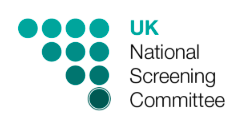July 2023 BSTG meeting notes
Published 25 July 2023
The Blood Spot Task Group (BSTG) held its fifth meeting on 4 July 2023.
1. Presentations from rare disease registration services
The meeting featured presentations from the UK’s 4 national rare disease registration services, which are the:
- Congenital Anomalies and Rare Diseases Registration and Information Service for Scotland (CARDRISS)
- Congenital Anomaly Register and Information Service (CARIS) in Wales
- National Congenital Anomaly and Rare Diseases Registration Service (NCARDRS) in England
- Northern Ireland Rare Disease and Congenital Abnormality Register (NIRADCAR)
The 4 guest speakers gave excellent overviews of the work of their services. Their presentations served to underline the importance of collecting and reporting accurate and timely data in order to help improve outcomes for people born with rare diseases. The speakers explained how their registers had been set up, their different roles and remits, challenges and future plans.
The registers vary in terms of the amount and type of data they collect, how long they have been collecting that data, the number of conditions they cover and the issues they face.
BSTG members heard that the general principles underpinning all 4 registers are very similar. All 4 speakers stressed that they are keen to collaborate internationally and would be supportive of potential future initiatives to explore data interoperability and joint working between the nations.
2. Update on ongoing projects
2.1 Comparison between EURORDIS key principles for newborn screening and UK decision making and implementation practices
The manuscript comparing EURORDIS principles with UK decision making and implementation practices has been submitted to a peer review journal, which has subsequently asked for minor clarifications.
It is hoped that the manuscript will be published soon and will facilitate further reflection and inspire screening bodies in other European countries to compare their own policy-making and implementation principles and practices with the EURORDIS principles.
2.2 Identifying challenges, opportunities and practical approaches when developing modelling for rare diseases
A contract for this project, looking at considerations for modelling exercises around newborn screening, has been signed, and work started in July following the meeting.
2.3 Providing practical recommendations for diagnostic test accuracy studies for very rare and ultra-rare conditions for consideration in newborn blood spot screening
It is hoped that a planned workshop on this project, involving the UK NSC and the Health Council of the Netherlands, will be held towards the end of 2023 or early in 2024.
3. Future meetings
Members agreed to invite to the next meeting speakers on big data and on the practical experience of running individual disease registries.

